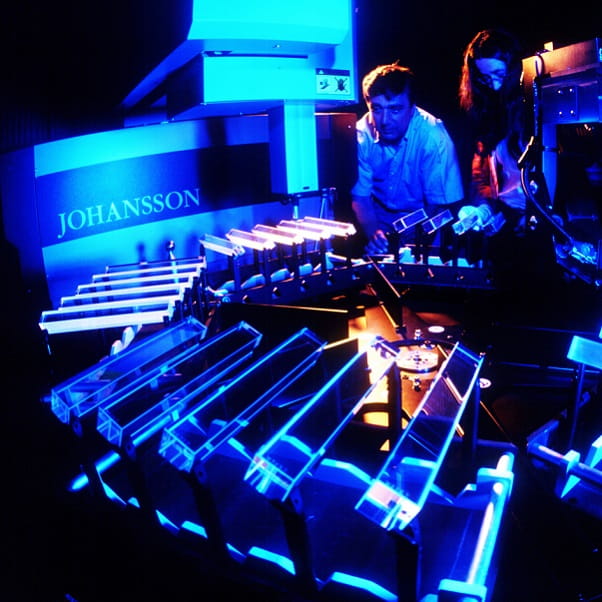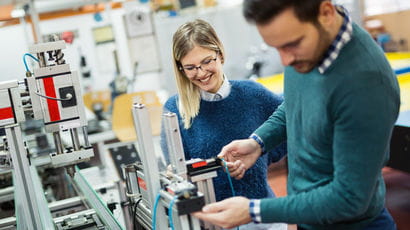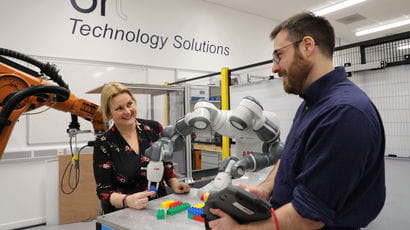Tracing data in science and commerce
The CRISTAL software system was initially developed to lend 24/7 support for the construction and installation of the complex scientific experiments being conducted at CERN’s Large Hadron Collider (LHC) in Geneva. Based on research by Richard McClatchey, Professor of Applied Computer Science, the system provided a dynamic software solution for managing over 200 terabytes of CERN’s LHC detector data and the complex workflows associated with producing it.
CRISTAL has since been translated into open source and commercially available variations, enabling companies across Europe to adapt to the evolving needs of their users in a rapidly changing technology landscape.

Adapting to change
The CRISTAL-ISE software, the subsequent version developed by a team of UWE Bristol researchers working at CERN, was designed to manage data in a way that allows information to be traced back to its origins and describes how the data is processed and used. This enables full traceability of the data in operation for maintenance and support purposes.
Part of the system’s unprecedented efficiency and flexibility lies in its description-driven approach, whereby it works with descriptions of objects used in any given logistical scenario. These descriptions evolve in-line with the changing needs and experiences of users, which means the system adapts to evolving needs over time.
Working with the French software development company Agilium, CRISTAL-ISE was adapted to meet the needs of industry and clinicians. Using a built-in Virtual Research Environment, it allows users to track data such as business information, laboratory results, patient records and images. The system not only gives users the tools to track data and monitor how information use used, it provides a space for collaboration and development between organisations.
For Agilium, CRISTAL-ISE has led to significant cost reductions and an increase in revenue to the estimated tune of 2 million Euros by 2020. Several of the company’s clients have benefited from the software’s capability to save time by operationalising workflows and business processes. These include a specialist aerospace painting company and the French utilities and waste water industries.
The software has since been adapted by the Swiss company iCube, experts in digitisation and industrial automation, to support the production of medical isotopes used for the treatment of cancer, and for production processes in Switzerland’s dairy industry.
iCube’s application has been used by AdAcAp Smart Pharma, lending greater security and quality control to its data processes. The resulting improvements in the company’s ability to release new products led to a recorded income of more than 100 million Euros in 2016/17.
Contribution to the UN 2030 sustainable development goals
UWE Bristol is proud to align our research to the UN sustainable development goals. The above research aligns with the following goals:
Breaking research boundaries
We’re tackling the big issues of today and tomorrow head on. This is big, brave thinking for a better future. It’s research done well. Research with the power to transform lives, transform the future.
Breaking research boundariesYou may also be interested in

News
The latest news stories from across UWE Bristol.

Research in the College of Arts, Technology and Environment
The College of Arts, Technology and Environment (CATE) has a well-established and continuously developing research environment.

